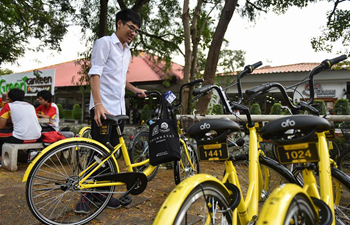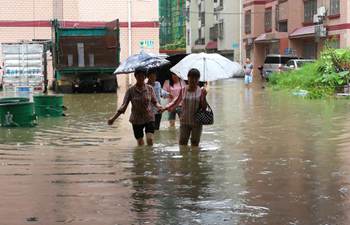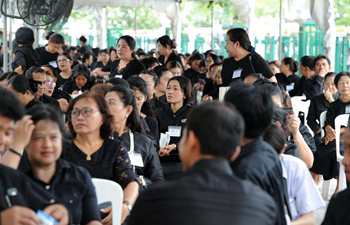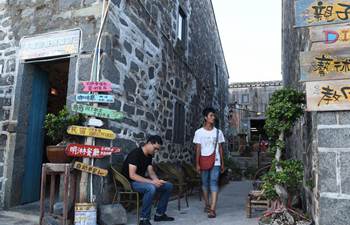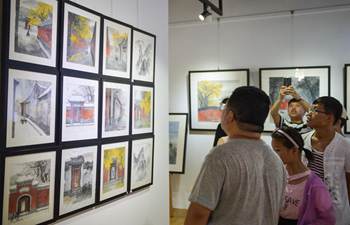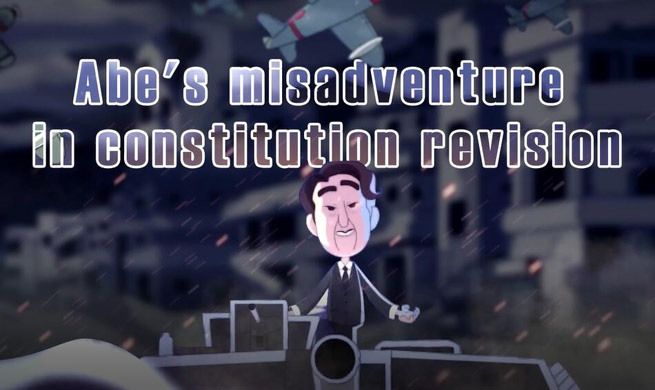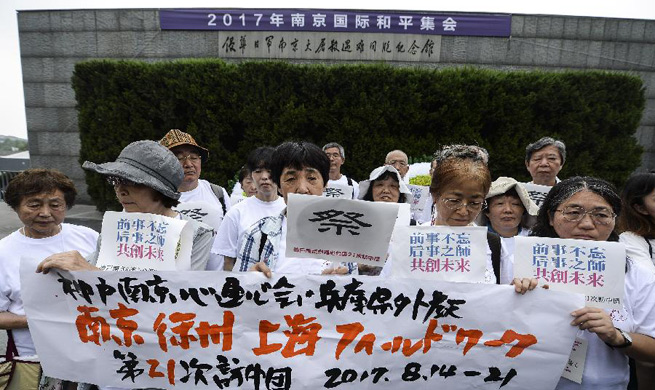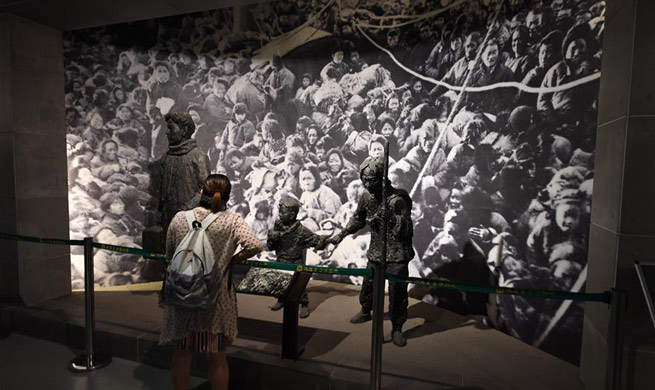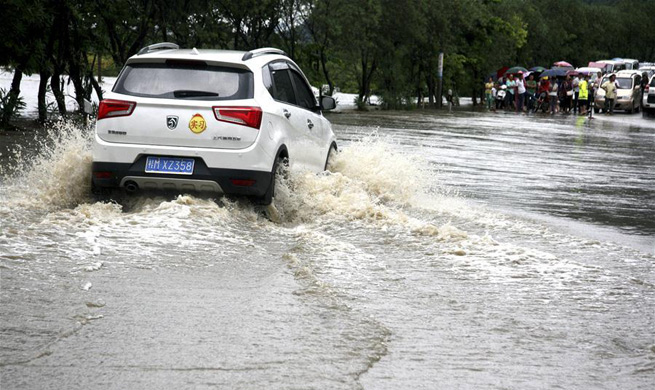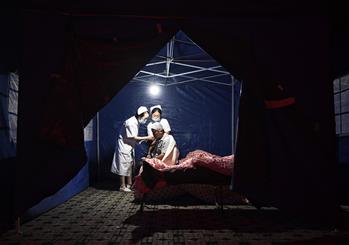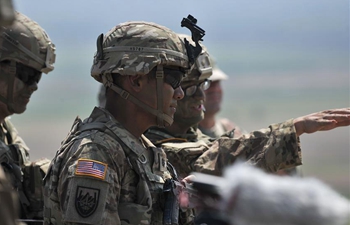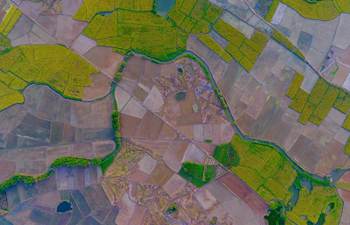TOKYO, Aug. 15 (Xinhua) -- Japan marked the 72nd anniversary of the end of World War II on Tuesday, with Prime Minister Shinzo Abe once again failing to mention reflection at an annual memorial service and a number of lawmakers visiting the notorious war-linked Yasukuni Shrine.
At an annual ceremony Tuesday in Tokyo to "honor the war dead" from World War II and to "pray for peace," Japanese Emperor Akihito stated his "deep remorse" over the past war for the third time at the national memorial service and expressed his wish for world peace.
However, Abe shied away from mentioning Japan's wartime atrocities or the suffering that Japan had inflicted upon nations including China and South Korea, before and during World War II. Neither did he mention the pledge not to engage in war again.
This is the fifth consecutive year that Abe failed to mention "reflection" at the annual memorial service since he retook office as prime minister in 2012.
Japanese prime ministers started to refer to Japan's past aggression at the annual event since 1994, when the then Prime Minister Tomiichi Murayama expressed remorse for the country's wartime atrocities.
Abe's speeches at previous four ceremonies also failed to mention Japan's wartime aggression, triggering criticism from Japanese people and Japan's Asian neighbors.
"Abe's failing to mention reflection or Japan's war aggression is rooted in his rightist historical view, and his refusal to fully admit the history," said Takakage Fujita, director general of a civic group dedicated to upholding and developing the well-known Murayama Statement.
He went on to say that Japan's invasion had imposed tremendous sufferings to the Asian people and Abe shall reflect upon the past war and offer a sincere apology.
Earlier in the day, Abe made a ritual donation as leader of the ruling Liberal Democratic Party (LDP) to the notorious Yasukuni Shrine which honors 14 Class-A convicted criminals of World War II, regardless of the feelings of the peoples of neighboring countries.
Two groups of lawmakers visited the controversial shrine on Tuesday morning with one group of junior, conservative LDP members headed by known nationalist Tomomi Inada.
Inada, a protege of Abe and known to share his similar right-wing views, quit her post recently as defense minister to account for a cover up scandal related to Japanese troops' activities while on a peacekeeping mission in South Sudan.
The second assembly comprised a bipartisan group, which included Masahisa Sato, senior vice foreign minister.
While the Japanese government tries to highlight Japan's sufferings in the war and evade the country's war responsibility as an aggressor, calls for the government to reflect upon the past have never stopped among the people who love peace.
A number of scholars and citizens gathered on Tuesday morning at the Japan Education Center in downtown Tokyo, protesting against the Abe administration's attempts to revise the pacifist Constitution.
Hiroyuki Konishi, lawmaker of the House of Councilors, gave a speech there, criticizing that the government could endanger Japan and calling for reflection upon the war.
Scholars and citizens around Japan as well as netizens are also engaged in heated discussions about a documentary released just two days before the war end anniversary by Japan's public broadcaster NHK.
The documentary, titled "The Truth of Harbin Unit 731," revealed the outrageous crimes committed by Unit 731, a covert biological and chemical warfare research and development unit of the Imperial Japanese Army that undertook lethal human experimentation during World War II.
The documentary, while irritating the ultra-rightwing forces, made many Japanese people learn about the truth of the war.
"I watched the documentary online yesterday. It sounded an alarm to our society," said Hiroshi Onishi, a professor of economics at Keio University in Tokyo.
He added that Japanese people should be alert about the current situation which has some similarity to that before the war ended, as the government is allocating more fund to encourage military research programs in universities.




